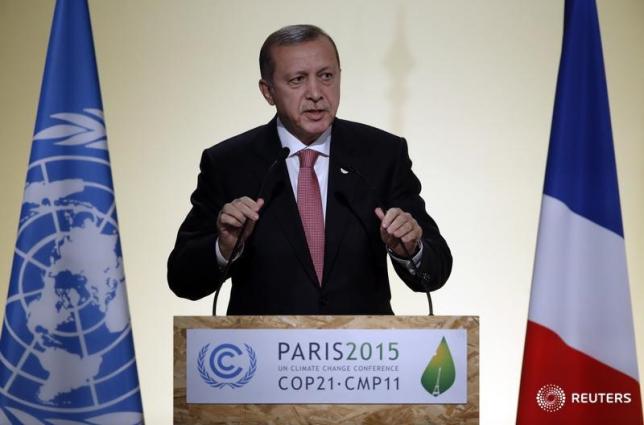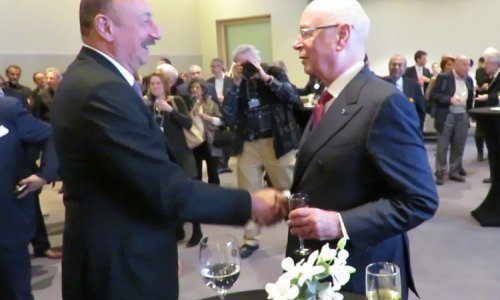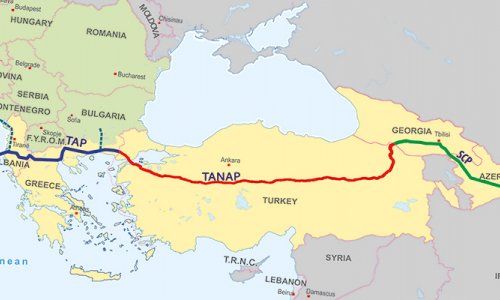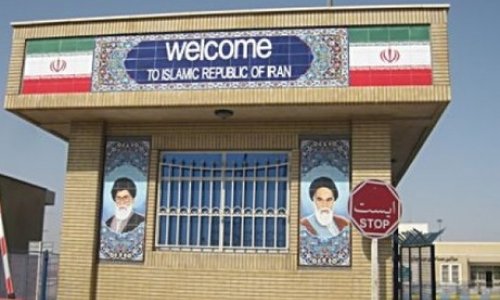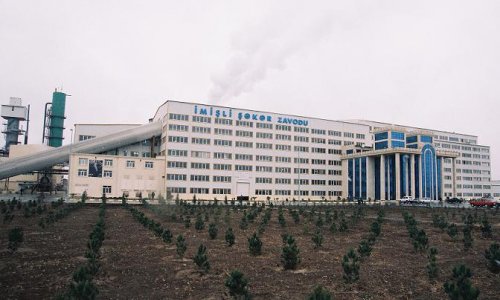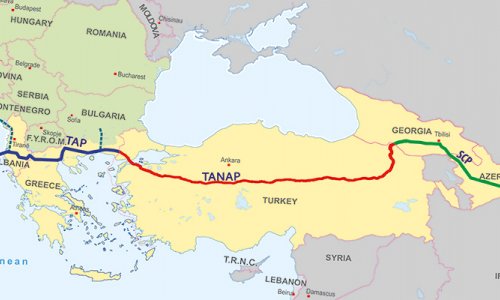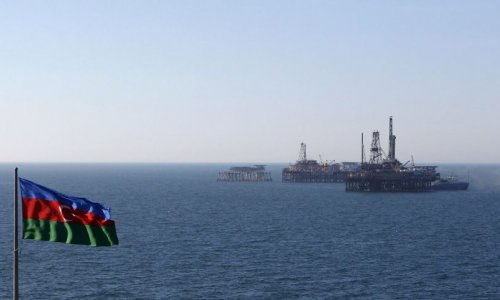Turkey's leaders have mounted a charm offensive among regional energy producers in an effort to diversify supplies as relations with major natural gas provider Russia crumble following the downing of a Russian warplane by the Turkish airforce.
President Tayyip Erdogan and Prime Minister Ahmet Davutoglu have traveled to key energy partners Qatar and Azerbaijan respectively this week in an effort to avert any economically damaging disruption in energy supplies as winter sets in.
Moscow and Ankara have seen relations hit a new low since a Turkish air force jet shot down a Russian warplane near the Syrian-Turkish border last week, the most serious incident between Russia and a NATO member state in half a century.
Russian President Vladimir Putin described the move as a war crime on Thursday and said the Kremlin would punish Ankara with additional sanctions. Russia has already banned some Turkish food imports and left trucks carrying Turkish exports stranded at its borders.
But Russia could deal a real blow by reducing gas supplies, a move broadly seen by analysts and Turkish officials as unlikely for now but which could seriously hurt the Turkish economy and for which Ankara is drawing up contingency plans.
"There is indeed a crisis right now ... We are exploring how we can offset this," a Turkish energy official said.
"Davutoglu and Erdogan have personally taken the initiative to make sure Turkey doesn't experience a problem in terms of energy supplies."
Ankara buys nearly 60 percent of its total gas needs -- around 27 billion cubic meters (bcm) -- from Russia via two main pipelines, which enter Turkey through the Marmara region, the country's industrial hub which includes Istanbul, its biggest city, and the most sensitive area to any disruption in supply.
"The Marmara region buys almost all of its gas from Russia and this region makes up 40 percent of Turkey's GDP (gross domestic product) as well as its energy consumption," said FACTS Global Energy consultant Cuneyt Kazokoglu.
"If Russia cuts gas, it would effectively be shutting down the Marmara region and that would seriously hurt Turkey," he said, adding he did not expect Moscow to take such a step as it would break a "contractual obligation".
NOT ENOUGH LNG CAPACITY
Buying gas from Turkmenistan and boosting supplies from Iran, already Turkey's second largest supplier, are among the options being considered, energy officials said. Bringing supplies from northern Iraq is another possibility.
Davutoglu visited Azerbaijan on Thursday with the aim of increasing gas imports through the Trans-Anatolian Pipeline (TANAP), a key project due to bring 16 billion cubic meters of gas to Europe. Around 6 bcm of that is destined for Turkey.
Speaking in Baku, Davutoglu said Turkey and Azerbaijan had agreed to complete the project before the original target date of mid-2018.
Earlier this week Erdogan visited Qatar to explore the possibility of buying more liquefied natural gas (LNG) cargoes from its Gulf Arab ally.
But Turkey's insufficient storage capacity and the heavy dependence of its business on regular natural gas mean any boost in LNG imports would only partially make up for lost Russian gas, according to Turkish think-tank TEPAV.
"The most important element of establishing supply security in countries which have a high dependence on natural gas imports is to have a storage capacity equivalent to 20 to 30 percent of consumption. In Turkey, that is 6 percent," TEPAV researcher Aysegul Aytac wrote in a recent note.
Nearly half of Turkey's power generation is sourced from natural gas, leaving households and industry vulnerable to any disruption, she said.
"The insufficiency of using alternative products in both industry and power generation as well as the inflexibility of households to use anything other than gas mean problems could be inevitable in the medium term."
www.ann.az
Follow us !

